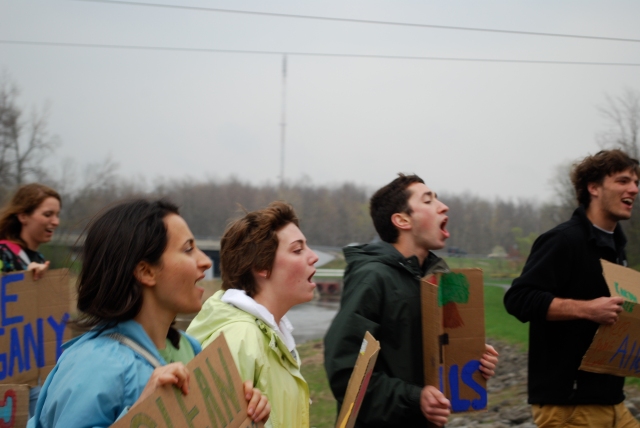Here’s the problem with youth activists: We play by small camp rules. Not as in intimate evenings with bonfires and outhouses, no: we can be a small, exclusive group.
One of the first things I was told when I started working as a community organizer was that organizers “do not burn out, they just give up.” Pithy as this phrase was, it did not shed any light on what an activist was, merely what an activist was not. And this is the problem. Activists see themselves as defined by contrast: they are the ones who don’t give up, who do nothing else, the ones who truly care and are truly dedicated.
It is not an incorrect self-image, just one that is overly heroic, all long hours and great feats. Problematically, this self-image is unnecessarily strict, and one that often makes us come across as little more than pedantic ideologues.
In reality, an activist is anyone who sees that there is a problem that needs fixing. An activist is anyone who has ever once called her or his local, state, or national representative. An activist is anyone who has spoken up when a friend has said something racist, sexist, or simply ignorant or insensitive.
The difference between someone who has signed a petition, and someone who works 16-hour days for environmental legislation is just a difference in opportunity. The one who works 16-hour days has—and takes—many more opportunities to effect change than the one who has called their senator once, but they are both leaders and both activists. I have worked as a community organizer for four years, but I am no more a leader than my mother, who recently wrote a letter to the Postal Service asking them not to shut down a needed neighborhood post office. I have simply taken more chances to fight for a cause.
By propagating a difference between “activist” and “concerned citizen” we neglect to see that activism and leadership come in many forms. We absolutely need those people working seven days a week organizing rallies and call-in days for national climate legislation, but we also need every student and every mother who takes five minutes once a week to call senators and asks them to support that legislation.
Pigeon-hole activists as one thing, and we turn away every person who does not identify with that image.
The only people who are not activists or leaders on a given issue are those who do not see a problem or do not see themselves a part of it. Unfortunately, there are many people who do not believe in climate change, or who do not feel that their lifestyle contributes to it.
Everyone who sees a problem, and everyone who recognizes that they are—and we all are—both part of the problem and part of the solution is an activist, a leader.
This definition of what is an activist is not just meant to be affirming. As leaders, each of us has a responsibility to lead, to take action in whatever form we are capable of. That could mean attending a rally, or that could mean organizing a statewide call-in day.
Start small and build. Do one thing a week to be part of the solution, be it fighting for national climate legislation, for civil rights, or for environmental justice (and they are linked).
There is no shortage of crises and, frankly, solving the world’s problems is going to take the leadership of every last damn one of us.

Inspiring! Thank you!
Well said, Adam!! To add, engaging in activism does not have to be exclusive of engaging in other matters or tasks. Neither is it now or never; the need may strike, and the spirit may move one, at any moment. So, we must seize the moment.
By the way, this experiment is truly magnificent. Thanks for leading the way!!
Good point…now or never is a bad way to look at it because it makes it more overwhelming…glad you’re liking this experiment!
by the way, i may use you and your experiment in my class – how does one use math everyday?